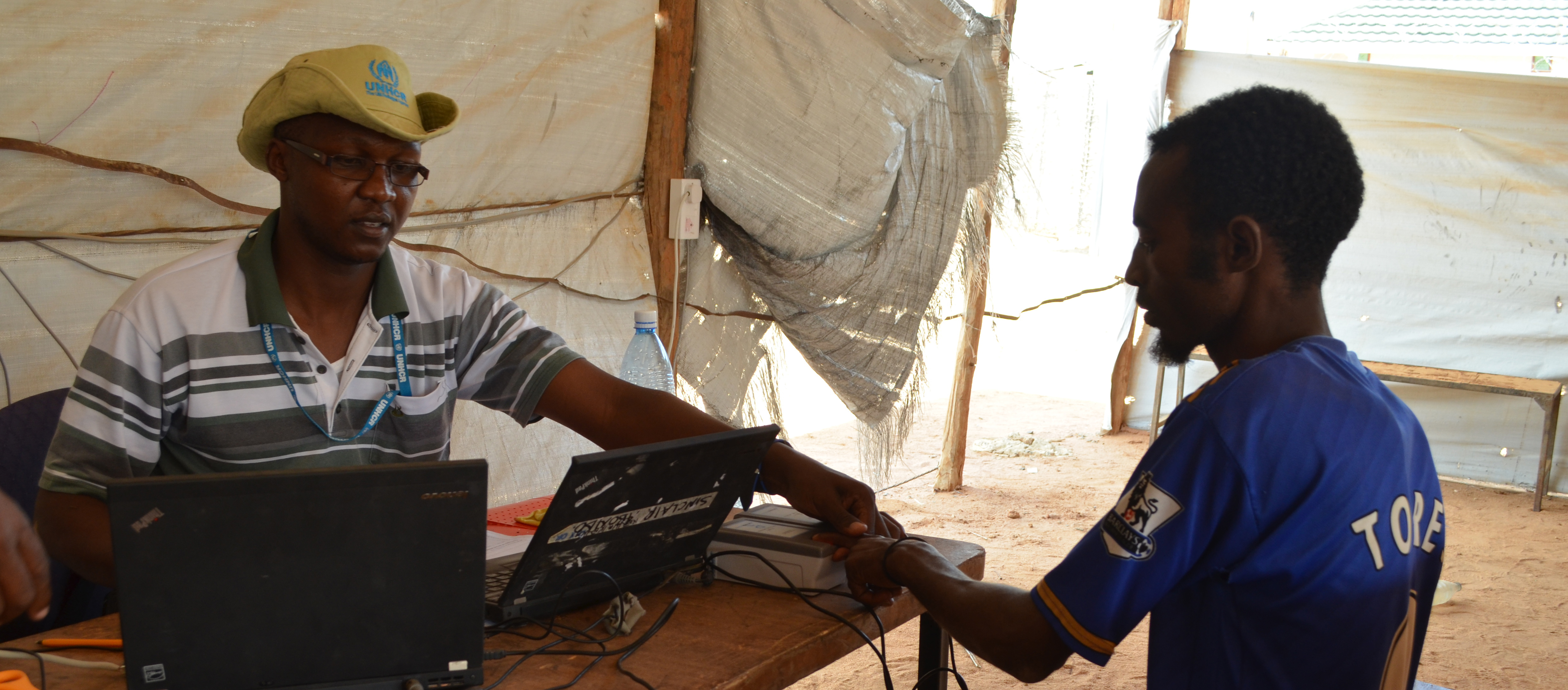In 2016, UNHCR has handed over registration and documentation activities to the Government of Kenya, represented by Refugee Affairs Secretariat (RAS). In Nairobi and Kakuma, registration activities have been unified, harmonized in one data management system, combined with biometrics system, and are being conducted by RAS personnel with the technical support of UNHCR in RAS premises. While in Dadaab, UNHCR and RAS are jointly conducting profiling of undocumented individuals leading to the most vulnerable being issued with tokens to access assistance.
In 2017 to 2018, documentation was streamlined to phase-out all documents issued by UNHCR, and only maintain those stated in the refugee Act and issued by RAS on secure paper. These documents are namely Movement pass (only issued in non-designated locations), Proof of Registration, Asylum seekers pass, Refugee Minors pass, waiting slip then refugee identity cards.
Lack of documentation put refugees at risk of Refugees of harassment, exploitation and abuse, and prevent them from accessing different services. Therefore, UNHCR has supported the transition from manual ID card application to an automated production of ID through the live capture unit (LCU) which will reduce the timeline to process refugees ID from 3 months currently to 10 days.
UNHCR has been providing RAS with technical and financial support to enhance its capacity, moreover, developing and introducing innovative tools to improve service delivery.
Amidst COVID19, RAS and UNHCR are working together to put in place protocols to ensure business continuity and safety of staff and refugees.
Asylum seekers and refugees are requested to keep RAS and UNHCR informed of any changes to their contact details; this can be done through the Refugee Assistance Helpline email [email protected] or 0800720063 (Toll-free Telephone).

